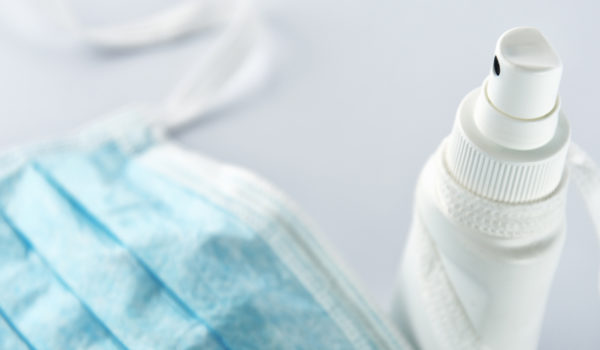On March 23, 2020, the President of the United States issued Executive Order 13910 entitled “Preventing Hoarding of Health and Medical Resources to Respond to the Spread of COVID-19”(the “Executive Order”). In it, the President declares that it is the policy of the United States that health and medical resources needed to respond to the spread of COVID-19 should not be hoarded. The Executive Order delegates the President’s authority under Sec. 102 of the Defense Production Act of 1950 (50 U.S.C. §4512) to the Secretary of Health and Human Services (“HHS”) to prevent any hoarding of health and medical resources necessary to respond to the spread of COVID-19 within the United States, including the implementation of any restrictions on hoarding and the gathering of information regarding how such supplies are distributed throughout the Nation.
On March 25, 2020, the Secretary of HHS issued a “Designation of Scarce Materials or Threatened Materials Subject to COVID-19 Hoarding Prevention Measures” (the “Notice”). In it, the Secretary identifies and designates scarce or threatened materials that are subject to the hoarding prevention measures authorized under the Executive Order and Defense Production Act of 1950. The materials designated include both raw components needed to produce the scarce or threatened materials as well as commodities, articles, components, products and items of supply, together with any technical information or services, ancillary to the use of any such materials. The Notice indicates that it is not intended to be regulation under the Defense Production Act of 1950, but to the extent it is determined to be a regulation, the Secretary finds that, in light of the current global pandemic, urgent and compelling circumstances make compliance with public comment requirements to adopt a regulation impracticable. The notice goes on to indicate that the designation of materials will terminate after 120 days from the date of publication unless superseded by a subsequent notice. This notice includes a public copy of a document entitled “Notice of Designation of Scarce Materials or Threatened Materials” which is published on HHS’s website, and which designates the following materials as subject to the anti-hoarding requirement:
- N-95 filtering masks;
- Other filtering masks (including those designated as N99, N100, R95, R99, R100, or P95, P99, or P100);
- Elastomeric, air-purifying respirators and appropriate particulate filters/cartridges;
- Powered Air Purifying Respirators (PAPR);
- Portable ventilators;
- Drug products with active ingredient chloroquine phosphate or hydroxychloroquine HC1;
- Sterilization services for any device as defined in section 201(h) of the Federal Food, Drug, and Cosmetic Act and other related sterilizers defined by regulation, including devices that already have FDA marketing authorization and those that do not but are intended for the same uses;
- Disinfecting devices intended to kill pathogens and other kinds of microorganisms by chemical or physical means, including those defined by regulation and other sanitizing and disinfecting products suitable for use in a clinical setting;
- Medical gowns or apparel, including surgical and isolation gowns;
- Personal protective equipment (PPE) coveralls, including Tyvek Suits;
- PPE face masks, including those covering the user’s nose and mouth which may or may not meet fluid barrier or filtration efficiency levels;
- PPE surgical masks, including those covering the user’s nose and mouth which provide a physical barrier to fluids and particulate materials;
- PPE face shields;
- PPE gloves or surgical gloves, including those defined by regulation and others intended for the same purposes; and
- Ventilators, anesthesia gas machines modified for use as ventilators, and positive pressure breathing devices modified for use as ventilators, ventilator tubing connectors, and ventilator accessories
For more information, please contact Bill Williams, Chad Eckhardt, Rhonda Schechter or any attorney in Frost Brown Todd’s Health Care Innovation Industry Team.

